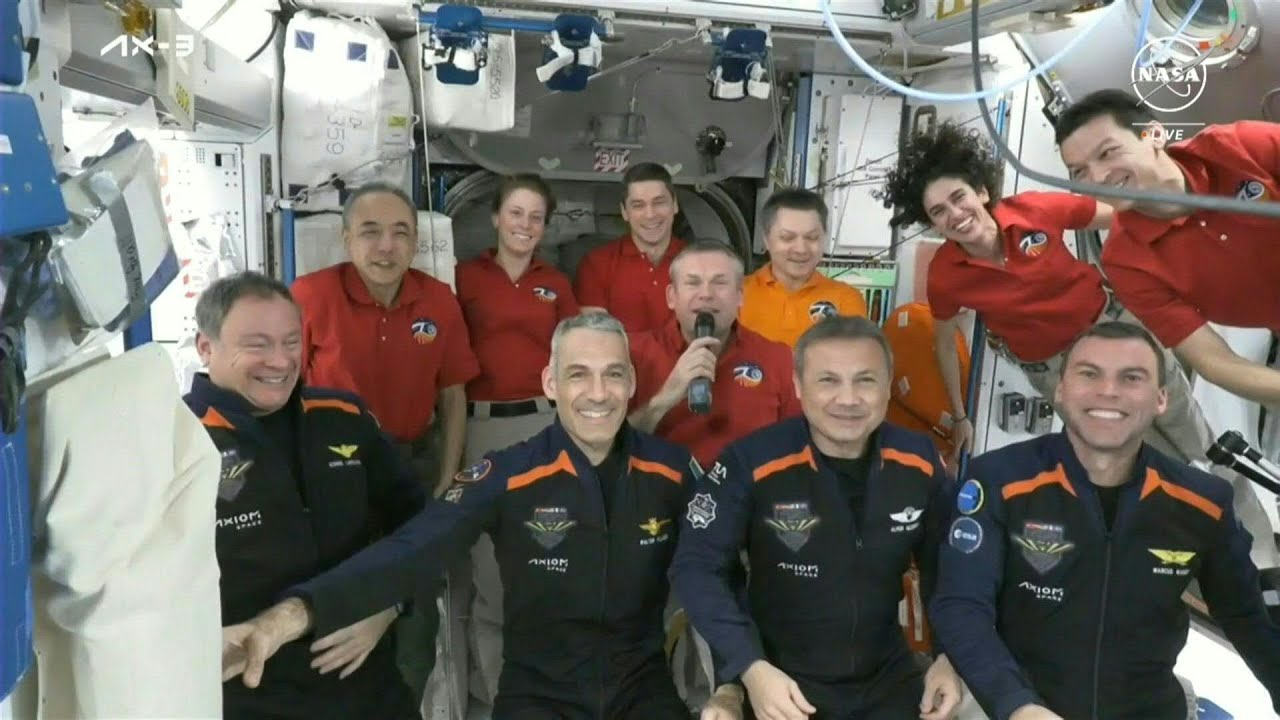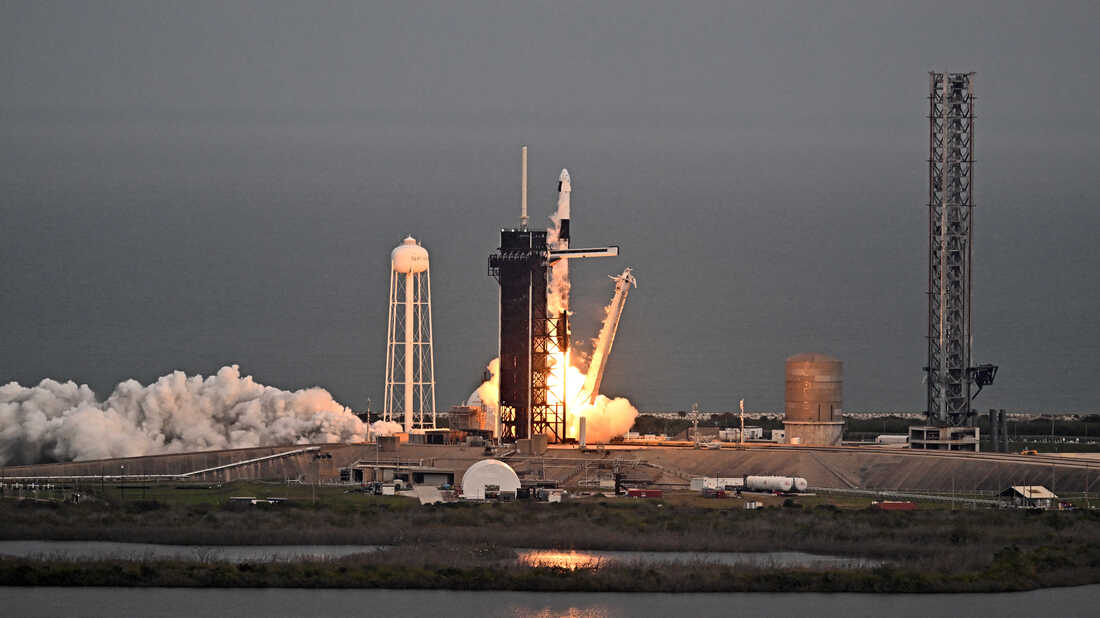European Astronauts Reach The International Space Station On Private Mission
European astronauts reach the International Space Station on private mission. The exclusively European crew, which included Turkey's inaugural astronaut, successfully reached the ISS as part of Axiom Space's third mission, known as Axiom Mission 3 (Ax-3).
Author:Daniel JamesReviewer:Karan EmeryJan 21, 202417.8K Shares445.7K Views

European astronauts reach the International Space Station on private mission. The exclusively European crew, which included Turkey's inaugural astronaut, successfully reached the ISS as part of Axiom Space's third mission, known as Axiom Mission 3 (Ax-3). This marks the company's third venture into the space laboratory and distinguishes itself as the first mission where all three paid seats were secured by national agencies rather than private individuals.
The spacecraft, a SpaceX Crew Dragon atop a Falcon 9 rocket, took off from NASA's Kennedy Space Center in Florida on Thursday. According to NASA's live stream of the event, the docking process at the ISS started at 1043 GMT, and the crew boarded the station within about two hours.
Covering a distance of around 260 miles (420 kilometers) above Earth, the SpaceX Crew Dragon reached the ISS after a journey lasting about 36 hours, as detailed on Axiom Space's website.
The crew of Axiom Mission 3 (Ax-3) is composed of Turkish pilot and Air Force colonel Alper Gezeravci, Italian Air Force colonel Walter Villadei, who has previously ventured to the edge of space on a Virgin Galactic space plane, and Marcus Wandt from Sweden, representing the European Space Agency.
Leading the team is Axiom's Chief Astronaut Michael Lopez-Alegria, a dual citizen of Spain and the United States and a former NASA astronaut. The seven current crew members, who are from Japan, Denmark, the United States, and Russia, gave the Axiom-3 team hugs upon their arrival at the International Space Station (ISS).
Exciting Mission
"We have doubled the number of nationalities on board the space station, going from four to eight, which I think is a great testament to the international collaboration that underpins this marvelous space station," said ISS commander Andreas Mogensen in a livestream, welcoming the four-member Axiom crew.
“„The ride uphill was pretty exciting. It never gets old. I think we probably spent a few more hours in Dragon than we felt like we needed to. But it was all good.- Axiom commander Lopez-Alegria.
The recent arrivals at the International Space Station (ISS) are scheduled to spend approximately two weeks conducting 30 experiments. These experiments aim to deepen our understanding of the effects of microgravity on the human body, advance industrial processes, and explore various scientific inquiries.
Established in 2016 by Michael Suffredini, a former ISS program manager for NASA, and entrepreneur Kam Ghaffarian, Axiom Space not only organizes private missions to the ISS but is also actively involved in the development of spacesuits for upcoming NASA missions to the Moon.
Beyond these endeavors, Axiom Space is working on the construction of a commercial space station. The plan calls for initially attaching it to the ISS, then separating it to orbit on its own, before eventually retiring the ISS.
While the precise expenses for Axiom Mission 3 (Ax-3) have not been officially disclosed, back in 2018, when the program was initially announced, the company outlined a cost of $55 million per seat. This figure encompasses the expenses associated with chartering SpaceX hardware and compensating NASA for various services.
Recent reports suggest that Hungary is contemplating a $100 million deal with Axiom for an upcoming mission, which would involve a single astronaut. Additionally, as part of its efforts to develop a post-Brexit space strategy, Britain has entered into an agreement with Axiom for a future mission that will feature UK astronauts.
Jump to

Daniel James
Author
Daniel James is a distinguished gerontologist, author, and professional coach known for his expertise in health and aging.
With degrees from Georgia Tech and UCLA, including a diploma in gerontology from the University of Boston, Daniel brings over 15 years of experience to his work.
His credentials also include a Professional Coaching Certification, enhancing his credibility in personal development and well-being.
In his free time, Daniel is an avid runner and tennis player, passionate about fitness, wellness, and staying active.
His commitment to improving lives through health education and coaching reflects his passion and dedication in both professional and personal endeavors.

Karan Emery
Reviewer
Karan Emery, an accomplished researcher and leader in health sciences, biotechnology, and pharmaceuticals, brings over two decades of experience to the table. Holding a Ph.D. in Pharmaceutical Sciences from Stanford University, Karan's credentials underscore her authority in the field.
With a track record of groundbreaking research and numerous peer-reviewed publications in prestigious journals, Karan's expertise is widely recognized in the scientific community.
Her writing style is characterized by its clarity and meticulous attention to detail, making complex scientific concepts accessible to a broad audience. Apart from her professional endeavors, Karan enjoys cooking, learning about different cultures and languages, watching documentaries, and visiting historical landmarks.
Committed to advancing knowledge and improving health outcomes, Karan Emery continues to make significant contributions to the fields of health, biotechnology, and pharmaceuticals.
Latest Articles
Popular Articles
